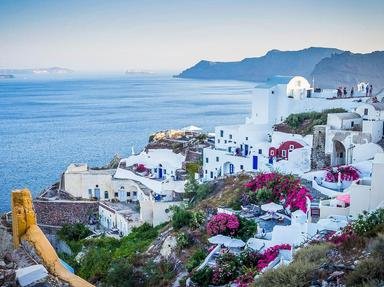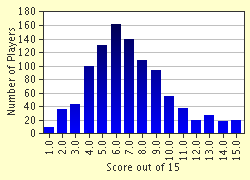Quiz Answer Key and Fun Facts
1. Anglo-Saxons would call it "Leghorn", which would be quite un-understandable for the inhabitants of this Italian city. What is the indigenous name?
2. The French call it Mayence. About the end of the 18th century this city was quite willing to become a part of the new-founded French Republic.
3. "Genf", the Germans call it. But then they know exactly about which city they are speaking. Do you? Well, 25 % chance is quite a lot. Try!
4. The Italians called it "Ragusa", centuries ago. To make it easy for you, I will give the name of the countries, in which this city might be found.
5. There is that border town, Eger. That's to say, the Germans called it so. (Yes, again a little clue for you.) The question is, how is it generally known - outside Germany, one might suppose - nowadays?
6. When Frenchmen are saying: "I am going to visit during my holidays this old city Aix-la-Chapelle", to which outlandish town are they then referring?
7. I do hate fill-in-the blanks. But in this particular case I have no choice. The Italians call it "Bolzano", but most of the inhabitants of this town will call it what?
8. The Ancient Greeks called it Massalia. Nowadays it is called (and I shall add the name of the actual country), well, what is it called today?
9. "Rijssel" the Dutch called it and sometimes still call it so. I think you will know it under another name, as:
10. "Amberes" it is for the Spaniards. The inhabitants would not recognize their city in this Castilian sound. They would however, if you call it:
11. "Lüttich" it is for the Germans. What is it for you?
12. "Slavkov" is the name of a nice little township in the Czech Republic. The name probably has no meaning to you at all, unless the old German name is divulged to you! Think of wars...
13. We stay with the Czechs for a while (nice people, by-the-way.) They call this city "Víden" (I do omit a diacritical sign on the "n", for your and my sake). How do you call that city?
14. Ah! Those French! Always having funny names for non-French cities, even if they are far way from Paris! Can you guess, which city is called by those callous French "Ratisbonne"?
15. But especially in Eastern and South-Eastern Europe the Germans were keen of supplying names in their own vernacular to towns and even small villages. (Partly because sometimes they had founded them, though.) What do we call Lemberg nowadays?
Source: Author
Oblomov
This quiz was reviewed by FunTrivia editor
minch before going online.
Any errors found in FunTrivia content are routinely corrected through our feedback system.

